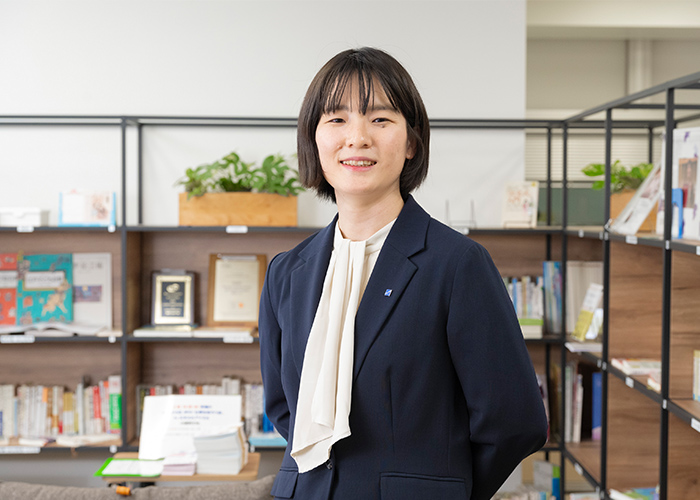Core experience of interacting with leaders from around the world

— First of all, please tell us why you joined the EIC.
I was born in Shiso City, Hyogo Prefecture, but due to my parents’ work as teachers, I spent my first through third grades of elementary school in Hong Kong. I had English conversation classes three times a week at the Japanese school I attended in Hong Kong, and I also took lessons in English there. After returning to Japan in the fourth grade, I started learning English at Kumon Center because I did not want to forget and wanted to brush up on my English.
I started from level G1 (the first level of junior high school), but I had a character that wants to move on to the next level, and I think that was because of Kumon’ learning style, which allowed me to move on without being restricted by grade level, which I think suited very well for me. Thanks to the support of my instructor, I was able to progress rapidly, and by the winter of my first year of junior high school, I was able to finish the final Kumon English worksheets.
I joined EIC in the 5th grade when my Kumon instructor recommended that I join. It was actually just three months after I started studying English at Kumon Center. Actually, the application period started around 3 months after I started Kumon English, and that time I had not reached the application requirement level. But since I was so eager to participate in the EIC I did a lot of homework and was able to attend the 10-day camp held at the Kumon International Junior-Senior High School in Yokohama.
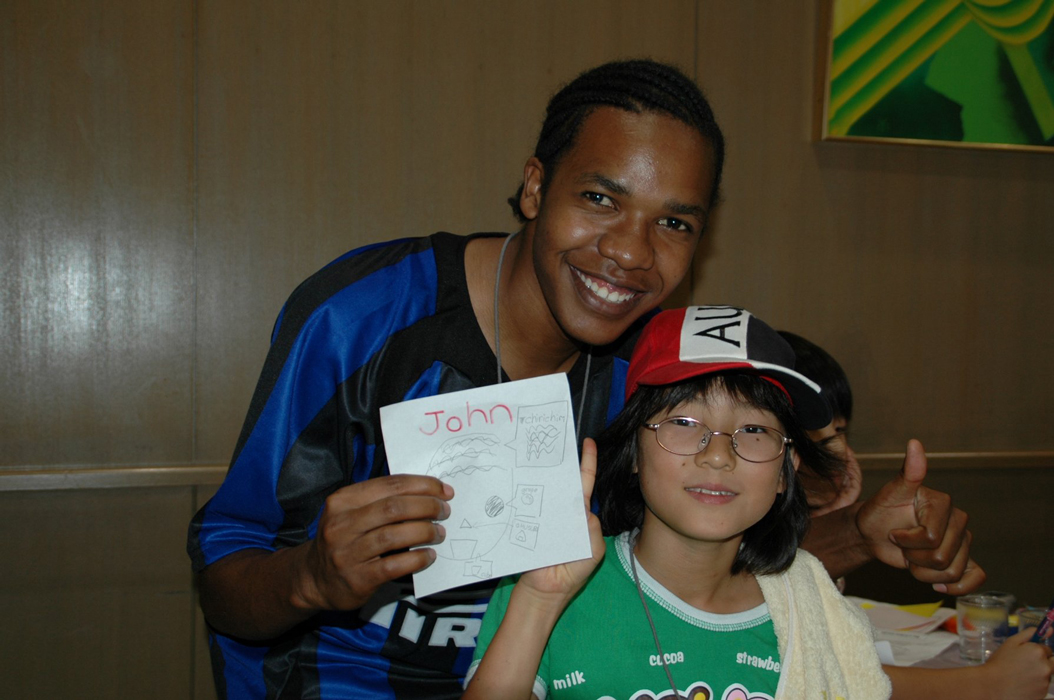
In EIC we were about 70 upper elementary school children from all over the country. The group leaders who played the role of coaches came from 20 countries around the world, and I still vividly remember how we all had a very enjoyable 10 days together. There were many activities that changed each day, and I especially enjoyed the dances that we all choreographed and danced together. We also tasted food from around the world and went on picnics.
During the program, we learned about the group leaders’ countries of origin and discussed and thought about world affairs together. One of the most memorable stories was from a leader from Sri Lanka. He told us that there are children in Sri Lanka who are suffering from poverty. I also learned about the civil war situation. Even as a child, I was struck by the thought, “Life is so different depending on the country you live in. This experience gave me a strong desire to “contribute to the world,” and it remains my core belief to this day.
“Contributing to the world” becomes “contributing through medical care” and more
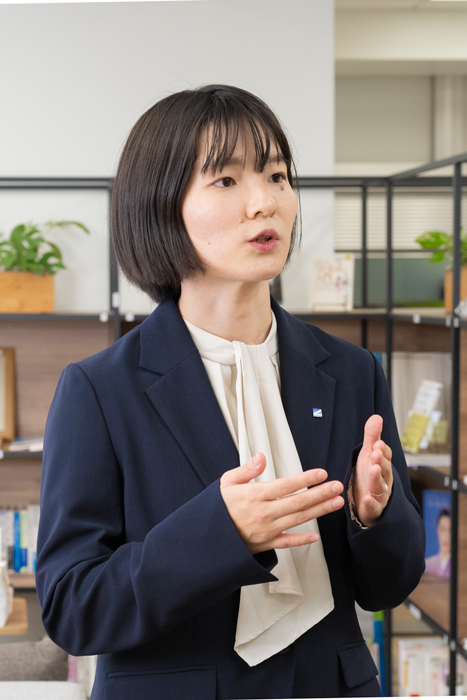
— What is your background in choosing a university or graduate school?
Always at the root of my life choices was the desire to contribute to the world, which I gained from my EIC experience. My choice of where to go to college was influenced by my experience in the soft tennis club during my junior and senior high school years. I was often got injured in club activities with sprains and separated muscles, and felt frustrated that I had to miss practice each time. Because of this, from the time I was in junior high school, I began to think that in the future I would like to work in medicine and support people suffering from the same injuries as myself.
I considered a career in medicine or physical therapy, but ultimately enrolled in the School of Sports Sciences at Waseda University, where I specialized in sports medicine and science, which is closer to medicine. I decided to pursue my studies at a graduate school because I wanted to do more specialized research on sports medicine, but I also wanted to go out into the world and study in an environment where I could engage in friendly competition with excellent students from all over the world.
I was good at English thanks to Kumon, so I first considered graduate schools in the U.K. and the U.S. as a place to study abroad, but there were problems with tuition fees and security. I decided to study in Germany because Germany has advanced medical science, public universities and graduate schools are tuition-free (depending on the state), and attracts excellent students from all over the world, so I thought that I would be able to spend time studying in Germany with a peace of mind and in a safe plus comfortable environment.
— Did you have any difficulty learning German?
I had never studied German at all before deciding to study abroad, so I attended language school in Heidelberg for the first five months after arriving in Germany and in Oldenburg for three months before entering graduate school. I worked very hard, taking classes at the language school in the mornings and staying at the library every afternoon until 9:00-10:00 pm to study!
However, perhaps because I had continued to study English well at Kumon, I had no difficulty at all in reading long sentences and understanding the main points. Kumon English was also effective in learning languages other than English. Thanks to Kumon, I was able to meet the standards required for admission to a graduate school in Germany, and I was able to use German in my daily life and in my classes at the graduate school without any difficulty. I was once again glad that I had done Kumon.
In graduate school, I studied the creation of an index to evaluate trunk muscles and injury risk from the perspective of training science in my major, Sports and Lifestyle.
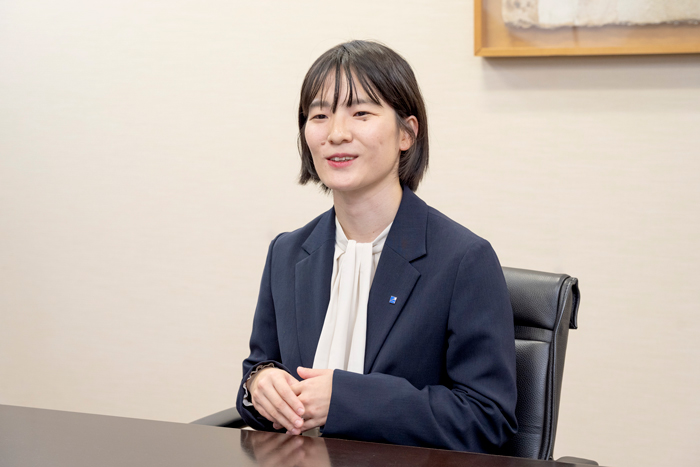
— Can you talk about your current work?
My experience at EIC also came in handy when I chose a job upon graduation from graduate school. I had always wanted to contribute to the world from the viewpoint of medicine, but when I asked myself in what way I could contribute, I realized that although the scope of what I could contribute to medicine alone was limited, I could contribute equally to all countries and people through medical equipment. With this single-minded determination, I decided I wanted to join a medical device manufacturing company. With this in mind, I focused my job search on medical equipment manufacturers.
At Nihon Kohden, which is the company I am working at now, my hopes were fulfilled as I was assigned to the Overseas Sales Department. I communicate with several overseas sales companies around the world to conduct marketing and market research, support business negotiations, and attend to requests from various regions and convey them to the relevant departments. I use English in more than half of my work every day.
Now in my second year with the company, I am mainly in charge of the Middle East and Africa region and sub in charge of the Europe region and South Korea. I start by learning about the market and studying the economic and political situation in each country, and then support the delivery of a product called “Biometric Monitor” to these regions to monitor patients’ physical changes. Even in the same region, each country has different healthcare systems and needs, so I learn something new every day and am inspired every time.
Last year, during a business trip to South Korea, I had the opportunity to visit a local hospital. Although the biometric monitoring business varies from short-term projects to projects that take several years to complete, seeing our products in operation in Korean hospitals connected to patients made me feel a renewed sense of fulfillment. I am motivated to continue to deliver biometric monitors to as many patients as possible in the future. I communicate with the staff in my region in English every day, and the experience of feeling the “joy of communicating with others and being understood by them” while in elementary school is the starting point of my active communication now.
We hope that your childhood will be an experience that you will treasure for the rest of your life.
— Please tell us what you would like to work on in the future.
My dream is to work at an overseas location. I am mostly interested in Europe. Our company has a base in Germany. English is the universal business language, but I think my strength lies in the fact that I can communicate in German and get live information in the local language, so Germany in particular is one of the countries where I would like to be stationed at someday. For this reason, I am trying to maintain my German language skills by listening to German-language radio. Thanks to this, I was able to give an impromptu presentation in German to a doctor from Germany at an international conference the other day.
Europe in a nutshell covers areas from southern Europe, such as Portugal and Spain, to areas closer to the Middle East. I also feel that it is an area where I can learn a great deal, such as considering what needs to be done in each country in light of the medical situation and political climate in each country. I would like to be stationed there someday.
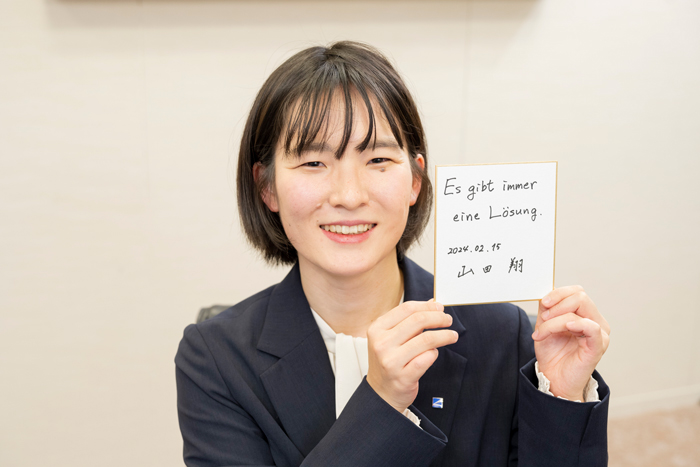
— I understand that the GIC will be held for real in 2024 for the first time in 4 years. Do you have a message for children and parents who are thinking about participating?
Don’ be afraid of making mistakes. Let’ try communicating in English.” This is the slogan of the GIC. I have learned at EIC to be a proactive communicator, focusing on my willingness to communicate with others even in poor English. I learned to be willing to try without being afraid of making mistakes, not only in English, but also in my study abroad in Germany, my current job, and everything else in my life. I am still able to take positive action at work because of the Kumon worksheets and the experience of doing things without fear of making mistakes in the EIC.
I participated in the EIC only once, but we continued to interact with each other every few years as we got together as participants in the “Ambassadors of Peace Network (APN),” a kind of alumni reunion.
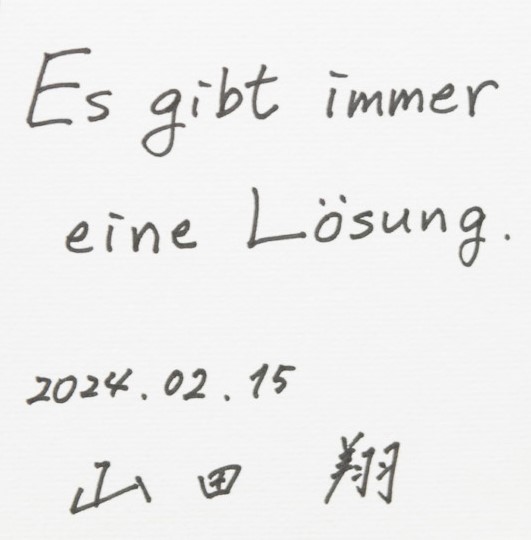
I really appreciate my Kumon instructor who introduced me to EIC. When I returned home from the camp, the first thing I remember saying to the instructor was, “That was fun! I remember I told my instructor, “It was fun! I learned a lot about the world that I did not know, and it has led me to where I am today. When I go back to my parents’ house, I still have dinner with my Kumon instructor sometimes and we continue to communicate with each other.
This year’ GIC will be held near Lake Biwa for six days, and I believe that many participants will be spending time away from their parents for the first time in their lives. Parents may feel worried, but I think that children are not as weak as their parents think. I myself was surprised that my parents were able to send me off to the camp for 10 days, and I was able to show them how much I had grown. So, I would like you parents to send your children off with a peace of mind.
And once they decide to participate, I hope that they will have the courage to speak up and practice speaking for themselves. The experience of actually using the English they have studied so hard at Kumon and being able to communicate with people from other countries will be an irreplaceable memory. The moment you have a successful experience of being understood, you will start speaking at once! Please do your best with the spirit of “Don’ be afraid of making mistakes!

